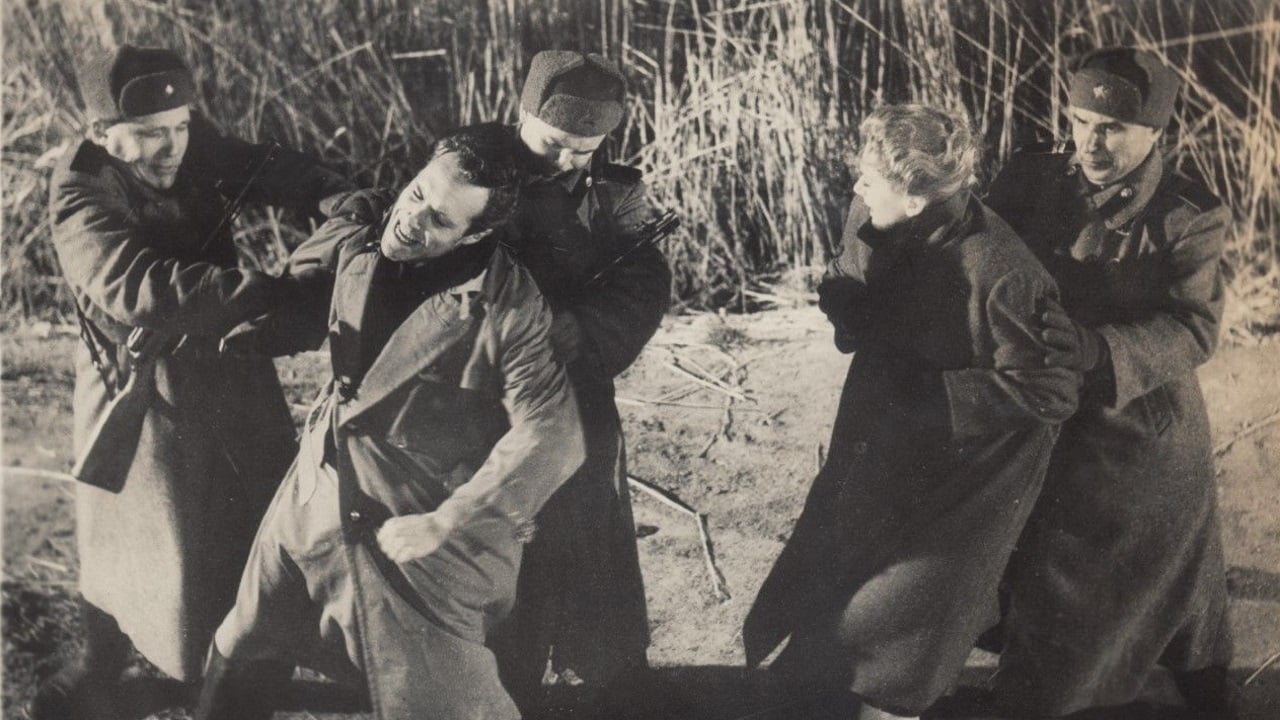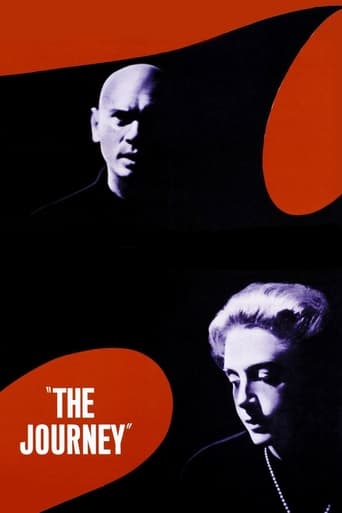

Nice effects though.
... View MoreGood idea lost in the noise
... View MoreI am only giving this movie a 1 for the great cast, though I can't imagine what any of them were thinking. This movie was horrible
... View MoreIt’s not bad or unwatchable but despite the amplitude of the spectacle, the end result is underwhelming.
... View MoreI really like that this was shot on location in Vienna, it added a very real feel to it. Also, they used a number of European actors so physically they look authentic.I found it more like a play in that the timing of some of the happenings in reality would be next to impossible. Also like a play, and I'm surprised no one has mentioned this in their reviews, is that Yul Brynner is eventually killed by a Hungarian resistance fighter who looks almost identical to Deborah Kerr who he is obsessed with so I suspect there was some dark message in that, and come to think of it, it's even darker in that the same resistance fighter had just killed Brynners' horse the night before so that was a kind of premonition. The ending, if it were reality, would be just too much of a coincidence -- Brynner takes Deborah Kerr and her companions to a bridge and sets them free into Vienna but just after they cross the bridge, the Bizarro World Deborah Kerr freedom fighter emerges from the bushes and kills Brynner while he's getting into his jeep. How did she know he was going to be there at that exact moment? Anyways, aside from a few ludicrous coincidences, it's a decent movie worth watching in my opinion.
... View MoreAs a big Dostoyevsky fan, I had always been disappointed with Hollywood's halfhearted attempts to get into the Russian romantic aesthetic -- case in point, Yul Brynner as Dmitri Karamazov. I had thought the whole problem was a poor casting decisions, but then I saw Yul as Major Surov and changed my mind. When given an intelligent script to work with, he suddenly came alive and was as noble, sexy, and conflicted as you could ever want a Neurotic Russian Officer to be! So he was a better Dmitri as Major Surov than he was as Dmitri. But that's because writer Tabori actually gave Yul, as the Conflicted Russian Officer, the kind of Conflicted Russian Officer lines that are worthy of real literature, and that have real meaning and pathos in them. For example, a propos of folk music, he says musingly, "You hear a man crying in the dark. And if you listen carefully enough, you know what he cries for. You look surprised, Lady Ashmore. Despite what you may have heard, tractors and Marxism aren't the only things the Russian cares for. There is always time for music."Brilliant!!
... View MoreSet during the Hungarian Revolution of 1956, this story has all the suspense of a good cold war book or movie as a multinational group of foreigners attempt to smuggle Jason Robards out of Hungary into Austria. However, three things complement the story, making this an extremely good movie.First, the actors use the actual languages of their roles. The Russian soldiers speak only Russian; the Hungarians only Hungarian; the Germans only German, except to the minimal extent to tell the story. Since Debra Kerr is English, she speaks only English, and, of course, Yul Brynner and a few others essential to the story also speak heavily accented English. As a result, the empathy of the audience to the travelers becomes paramount. The viewer shares all the confusion and suspense of being involved in an illicit border crossing when he/she cannot understand any of the languages spoken around them. Very powerful feelings are aroused in the audience, and notwithstanding the heavy use of foreign languages, the audience is never at a loss for following the film. No subtitles are necessary.Second. I was in Hungary in 1995, and I'm telling you, this movie has it right on. From the gypsy music overpowering the dinner meal to the underground caverns in the buildings where much of the action takes place to the village scenes, the realism is incredible. If I didn't eat in the actual restaurant in the movie, I ate at its double. I thought that I actually walked down the main street in that village. (Actually, the film was shot in Austria).Third, and most important, this movie reunites Deberah Kerr and Yul Brynner (after The King and I) and the magnetism between them as the story unfolds is nothing short of Oscar qualified. Of course, Yul already received an Oscar for playing that relationship, so the Acadamy wasn't going to give him another one, but that is the quality of the film. Don't miss this one.
... View More"The Journey" is a romantic version of the cold war. It's about an English woman (Deborah Kerr) trying to smuggle her former love, a Hungarian scientist (Jason Robards, Jr.), out of Hungary during the Hungary Revolt in 1956. She's on board a bus with thirteen other international people who are trying to get out of Hungary through the Austrian border. Of course, the bus gets stopped by the Russians for a security check. The Russian officer-in-charge (Yul Brynner) becomes attracted to the English woman (Deborah Kerr)and delays the trip. Of course, the Russian officer knows the truth about the Hungarian scientist posing as a British citizen, but he decides not to arrest the scientist because he is waiting for the English woman to come to him. Of course, this all sounds absurd, but it is a fun movie to watch. Despite the romantic flow of dialogue between Mr. Brynner and Ms. Kerr, which seems inappropriate in the situation that they are in, the movie becomes suspenseful and interesting. The good acting overrides some of the silly dialogue. Perhaps, some people involved in the Hungarian Revolt would not appreciate this movie; they would consider it a piece of fluff. This is my favorite Yul Brynner role. He speaks with his own, masculine voice and is very attractive, especially when he becomes vulnerable. This is Deborah Kerr's second time working with Yul Brynner since they made "The King and I" in 1956. They make a very attractive couple. Too bad they never worked again. This was the second sexy role Ms. Kerr took since "From Here to Eternity". Despite the fact that Ms. Kerr was wearing heavy winter clothes throughout the movie, she was very beautiful and sensual. The fine supporting cast was headed by Jason Robards, Jr., in his first film role. Some of the international cast were recognizable, like for instance, Robert Morley from England. However, the rest of the actors, I have never seen before or since, were just great in the movie. In the background, it was fun to see Senta Berger, as one of the maids, speak a few lines of Hungarian. A few years later in 1966, she was in a movie, "Cast a Giant Shadow", with Yul Brynner as his leading lady. She is still working today.
... View More